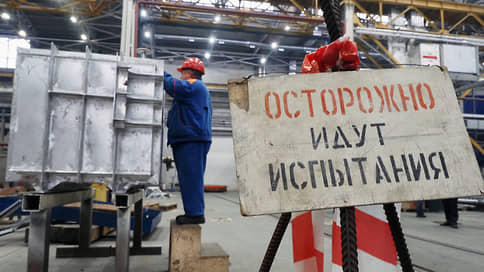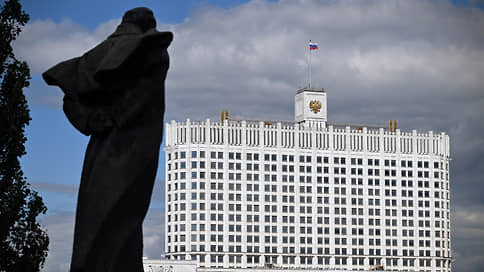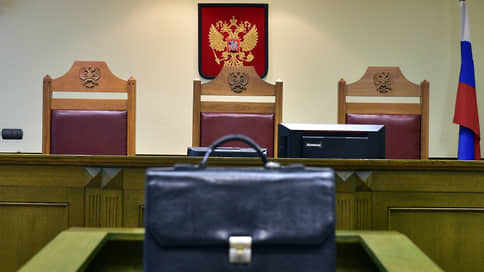Trade unions require strengthening control over labor protection

Trade Unions are concerned about the risk of growth in 2025 by the number of violations of labor rights of workers. Associations refer to changes prepared by the Ministry of Labor in the work of Rostrud – it will be united by the unification of the territorial bodies. The department, however, consider the new model of supervisory activity effective, referring to a reduction in wage debts and a long -term decrease in production injuries. They note that reform will reduce only administrative personnel, but not the number of inspectors. This will increase their salaries and tighten the requirements for the quality of work.
As noted in the analytical note (“Kommersant”) experts of the Federation of Independent Trade Unions of Russia (FNPR), the introduction of the moratorium under the control and supervision reform “entailed restrictions on the right of state labor inspectors of free access to workplaces at any time of the day-even if there is an obvious threat to the life and health of the employee, the inspector cannot conduct an audit without agreement without agreement prosecutor’s office. » In 2023, the state inspectors of labor sent about 2 thousand applications to the prosecutor’s office to coordinate unscheduled inspections in connection with already occurred accidents – and received 1.5 thousand failures, the FNPR noted.
Separate concern of the authors causes Rostrud’s plans to enlarge the management by creating 12 united territorial bodies – for example, one of them will operate in Moscow, Moscow, Vladimir and Tver regions.
“Their employees will not be able to physically reach every workplace, which is a danger to the life and health of workers,” the authors of the document are worried.
Trade unions are afraid of the growth of production injuries – according to the social fund, the number of insured cases from 2020 to 2024 has already increased by 6 thousand, to 38.2 thousand (in 2020, 24.1 thousand accidents with a mild and 3.2 thousand with severe outcome, 26.5 thousand and 5.4 thousand were recorded. respectively). The number of deaths in production increased even more-from 1.2 thousand in 2020 to 1.8 thousand in 2024. This can be largely caused by the activation of enterprises after 2022, especially in the industry acting as the driver of the Russian economy – the number of employees in it now exceeds 7 million people, and since 2022 this indicator has grown by more than 200 thousand people. Taking into account the “sovereignty” of the economy, the role of industry in it will continue to grow, which causes unions anxiety for safety in industries, especially since employers often note that under the conditions of personnel deficiency, the qualifications of those who can be hired are less suitable for them. “Trade unions advocate restoring the powers of the State Labor Inspectorate in order to protect the life, health and labor rights of workers,” the document says.
Replacing planned inspections with preventive visits really reduced the powers of labor inspections, the chairman of the Executive Committee of the Confederation of Labor of Russia Igor Kovalchuk agrees – to say that employers everywhere improve working conditions would be exaggerated.
It should be noted that the moratorium on business checks acted until the end of 2024 and really applied to planned inspections of compliance with labor rights and labor protection of workers. This sharply reduced the receipt of fines issued by the State Inspectorate to the budget – from 2.4 billion rubles. In 2020, up to 1 billion rubles. In 2023. In 2024, according to the Ministry of Labor, this indicator began to grow again – up to 1.2 billion rubles. The FNPR believes that the decline in the fees of fines has led to a decrease in the budget financing of Rostrud and, as a result, to the unification of the territorial bodies. It should be noted, however, that under budget legislation, fines are received in the “common boiler” of income and financing of departments does not depend on fees. According to the Ministry of Labor, the financing of Rostrud will remain at the same level – 3.67 billion rubles. In 2025, after 3.65 billion rubles. A year earlier and 3.45 billion rubles. In 2023. The press service of Kommersant’s department reported that the creation of 12 interregional inspections will not lead to a reduction in the number of labor inspectors (1.8 thousand people); Only administrative personnel will be partially dismissed, which will increase the level of remuneration of inspectors (this is required by the Presidential Decree of October 29, 2024 No. 922 on the remuneration of federal civil servants).
Moreover, the reform carried out during the moratorium changed the model of the work of the inspectors itself: now they are required to apply the risk-oriented approach to checks. Since 2023, the decline in the number of inspections was really observed – the only basis for them was the risk indicators that should ensure the effectiveness of inspections of at least 75% – but in 2023–2024 these indicators were only developed. In the Ministry of Labor, the Rostrud reform is evaluated positively, noting that the effectiveness of the selected model of supervisory activity is indicated by the reduction of salary debts in the Russian Federation – from 2.2 billion rubles. In 2021 to 370 million rubles. In 2024-and an assessment of the dynamics of injuries on a long horizon. “The number of cases of industrial injuries has decreased by ten years by more than a third,” the press service of the department noted.
In the RSP, it is noted that the transition to a new model of supervision allowed business to avoid unnecessary fines, stimulating it to independently invest in labor protection of workers, and hope to maintain the “preventive” nature of interaction with the inspection.
“Many enterprises do not have enough knowledge of the Labor Code, and taking into account this, the labor inspectorate should, as now, act as a consultant who allows to correct the violations,” says Marina Moskvina, managing director of the RSPP market and social partnership. However, the government intends to gradually turn off such prophylaxis, preserving it mainly for small enterprises.








